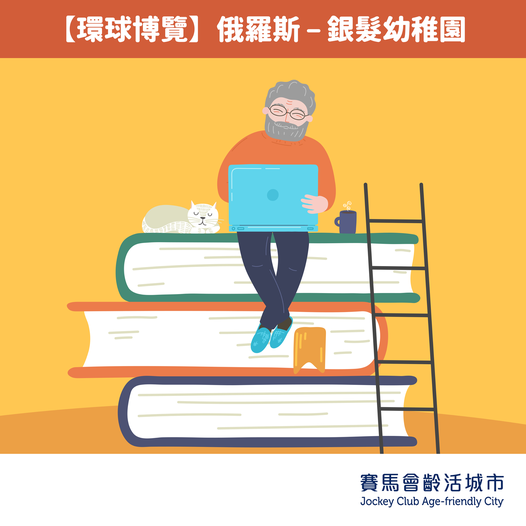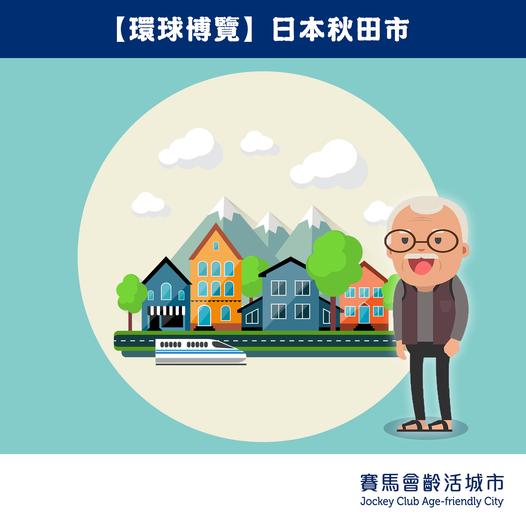Learn from
Good Practices



Establishment of age-friendly task force | Canada
The City of London was the first city in Canada to join the WHO Global Network for Age-friendly Cities and Communities in 2010. The Age-friendly London Task Force, which consists of volunteers of older adults, was set up to establish a vision of making London an age-friendly city, identify strategies for achieving the vision, and develop an action plan. Eight working groups based on the WHO domains of age-friendliness were also established to implement the initiatives of the action plan.
An example that addressed the transportation domain was the development of an education and training programme for all drivers on how to be sensitive to the needs of older adults and those with disabilities. Examples of community-driven changes were advocacy efforts to accelerate the construction of multi-purpose recreation facilities and the opportunities for older adults to participate in the design or redesign of community centres.
Read more: Click here
Age-friendly initiatives in La Plata | Argentina
La Plata has been committed to improving the city’s age-friendliness since 2006. As part of the WHO Global Age-friendly Cities project, La Plata conducted a participatory baseline assessment in 2007 that led to the development of the Global Age-friendly Cities Guide.
Major works done by La Plata on improving age-friendliness in relation to accessibility and safety included installation of traffic lights with countdowns for pedestrian crossings, improving signposting and identification of bus stops, introduction of magnetic cards with bus fare discount for older people, and installation of safety cameras.
Read more: Click here
Promoting age-friendly city in the County of Chiayi | Taiwan
In September 2011, Chiayi participated in the signing of the Dublin Declaration on Age-friendly Cities in the First WHO International Conference on Age-friendly Cities to show its commitment to creating an ageing-friendly city. In 2014, Chiayi City Healthy City Promotion Association joined the membership of the International Federation on Ageing (IFA) which is one of the affiliated programmes under the WHO Global Network of Age-friendly Cities and Communities.
Chiayi government was dedicated to building an age-friendly city in accordance with the eight domains identified by WHO. Relevant departments have collaborated with universities, local research institutes, and non-governmental organisations in drafting action plans and promoting the age-friendly city projects through various community engagement activities.
The following achievements have been made:
- Setting up health check stations in community centres and convenience stores
- Rendering pick-up and transportation services for elders to attend events
- Training employees in the service sector to show respect for elderly people
- Organising the “Grandparents Festival”
- Providing vocational training courses and subsidy to older people
Read more: Click here
Australian Capital Territory's (ACT) Strategic Plan for Positive Ageing | Canberra, Australia
The Australian Capital Territory’s (ACT) Strategic Plan for Positive Ageing 2010-2014 has been developed to lay down a blueprint for Canberra to support positive ageing and an age-friendly city. Seven strategic priority areas which aligned with the WHO domains of age-friendliness were identified in the Strategic Plan.
A number of initiatives and actions have been implemented. Examples include:
- “Seniors Information Online”, which is an online platform providing a wide variety of information for the seniors, such as legal and safety, health and well-being, accommodation, recreation, lifelong learning and volunteering
- The annual Canberra Gold Award that recognises and honours the contribution of centenarians who have made long-term commitment to the ACT
- Publishing of the ACT Business Guides to Older Customers and to Mature Workers
- The launch of Older Persons Assembly representing Canberra’s older persons community to discuss resolutions to improve the age-friendliness of ACT
Read more: Click here
Silver hair kindergarten | Russia
A social welfare group in Russia opened a “silver hair kindergarten” aiming to serve the elderly. The concept of “silver hair kindergarten” is similar to other kindergartens, where the “schooling time” of the elderly was 8am to 4pm from Monday to Friday. The elderly could interact with each other, play chess, do embroider and exercises, learn how to use new technologies such as smart phones. The elderly was able to obtain good care, information and social participation opportunities. More importantly, different from traditional elderly homes, they enjoyed higher autonomy as compared with traditional elderly homes and could go back home “after school” every day. The charges of this “silver hair kindergarten” in Russia were reasonable. The working adults could go out to work at ease, while the elderly would not feel bored, which was a win-win solution.
Read more: Click here (Chinese version only)
Exemplary age-friendly city | Japan
The city of Akita, situated in the northwest Japan, had nearly one-third of its total population reaching the age of over 65 in 2017. The city upholds a positive and proactive attitude towards ageing population. Through improving the age-friendliness in 8 domains promulgated by the World Health Organization, the city of Akita has built an exemplary age-friendly city.
Under the domain of Social participation, Akita government has worked with local civic organisations, non-profit organisations and private enterprises to set up an intergenerational volunteering system, which encourages the elderly to take part in volunteering services, provides activity spaces, organises different activities (e.g. sports day, exhibition, etc.) for the elderly, and offers them a start-up guide titled “Second life” to assist them in actualising their aspiration of starting a business.
The city of Akita has also actively developed silver hair economy by establishing collaboration opportunities between enterprises and non-profit organisations in order to provide the elderly with the environments and equipment they need, such as hearing aids, public spaces and installation of benches, etc. With the government support, participating companies have largely increased the re-employment opportunities for elderly people. The elderly can unleash their potentials while the problem of labour shortage can also be mitigated.
Through various efforts of policy advocacy, education, etc., the concept of age-friendliness has been infused into residents’ everyday life in the Akita city.
Read more: Click here (Chinese version only)
Health map for silver hair | Taiwan
Taipei launched a health map for the elderly. Through the map, the elderly could search and join different courses, sports and activities (e.g. co-dining activity), which provided the elders with social interaction opportunities. Many elderly people in Taiwan are vegetarians. This map could assist in searching vegetarian restaurants to take care of different needs.
Read more: Click here (Chinese version only)
Fulfilling Elderly’s Dreams via VR | United States
A non-profit organisation in Miami, USA has utilized the technology of virtual reality (VR) to help elderly people experience diving, hiking, visiting the space, etc. There are many local elders, living alone or in elderly homes, who would easily feel lonely or have negative feeling of being isolated by the society. This interesting VR experience can bring new insight to the elderly, letting them fulfil their dream of travelling and fight against depression and isolation.
Read more: Click here (Chinese version only)





